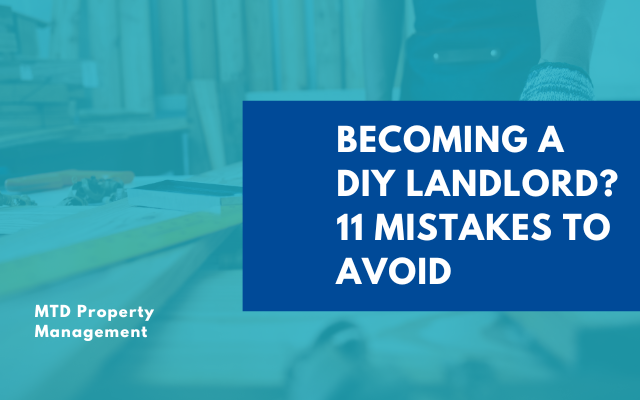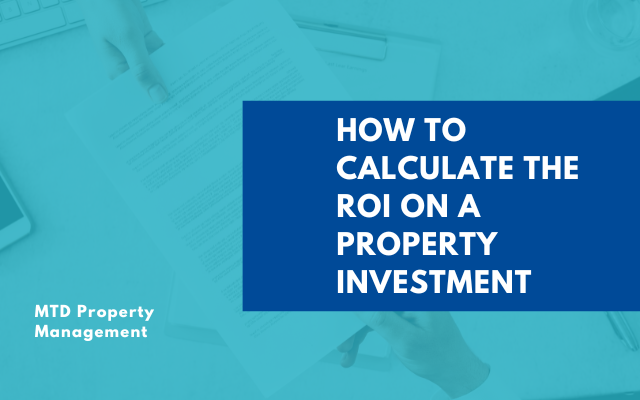
Owning a rental property can be a profitable investment, but to maximize your returns, you need to understand how depreciation affects your rental income, cash flow, and property value.
Depreciation allows landlords to recover the cost of their property over time through tax deductions, significantly impacting financial planning and profitability. At the same time, property value appreciation is a key factor in long-term wealth accumulation.
Understanding both concepts helps landlords make informed decisions that optimize tax benefits, cash flow, and investment returns. Keep reading to learn more!
What Is Rental Property Depreciation?
Depreciation is an accounting method that allows landlords to deduct the cost of a rental property over time. Since properties experience wear and tear, the IRS permits landlords to claim depreciation expenses, lowering taxable income. However, the land itself does not depreciate—only the structure and certain improvements are eligible for depreciation.
Rental property depreciation is based on the concept that buildings and improvements gradually lose value due to aging and use.
While property value in the market might appreciate, the IRS allows landlords to depreciate rental buildings based on a set schedule, helping reduce annual tax liability.
Eligibility Criteria for Depreciation
To qualify for depreciation deductions, your property must meet these criteria:

- Ownership: You must own the property.
- Income Generation: The property must be used to generate rental income.
- Useful Life Expectation: The property must have a determinable lifespan beyond one year.
- In-Service Requirement: Property depreciation begins when the property is ready and available for rent, not necessarily when tenants move in.
For instance, if you purchase a rental home but take six months to renovate it before listing it, depreciation only starts when the property becomes available for lease.
How Is Rental Property Depreciation Calculated?
The IRS requires landlords to use the Modified Accelerated Cost Recovery System (MACRS)to calculate depreciation for residential rental properties.
Under MACRS, rental buildings are depreciated over 27.5 years, meaning landlords can deduct a portion of their property's cost each year.
Steps to Calculate Depreciation:
- Determine the Property’s Cost Basis: This includes the purchase price and any acquisition costs (e.g., title fees, legal fees, and closing costs).
- Separate Land and Building Value: Since land is not depreciable, you need to allocate part of the total cost to the land and the remainder to the building.
- Apply the Depreciation Formula: Divide the depreciable value by 27.5 years to get the annual depreciation deduction.

Example Calculation:
- Property purchase price: $300,000
- Land value: $60,000 (not depreciable)
- Building value: $240,000 (depreciable amount)
- Annual depreciation deduction: $240,000 ÷ 27.5 = $8,727.27
This means you can deduct approximately $8,727 each year from your taxable rental income.
What Can Landlords Depreciate?
Besides the building itself, landlords can also depreciate certain improvements and assets, including:
- Structural improvements (e.g., new roof, HVAC system, plumbing upgrades)
- Furniture and appliances (e.g., refrigerators, stoves, washers/dryers)
- Outdoor structures (e.g., fences, sheds, driveways)
Different assets have different depreciation schedules. For example, appliances may be depreciated over five years, while structural improvements follow the 27.5-year schedule.
Impact of Depreciation on Property Value
Although depreciation reduces taxable income, it does not necessarily reflect actual market value changes. A property’s adjusted basis (original cost minus accumulated depreciation) determines taxable gains when selling.
If a property appreciates, the gap between market value and adjusted basis widens, potentially increasing capital gains tax liability, which can impact your overall return on investment.
For example, if you sell a rental home for $400,000 after claiming $100,000 in depreciation, your adjusted basis might be $200,000 instead of the original $300,000, resulting in a higher taxable gain and affecting your return on investment.

Depreciation Recapture Tax: What Landlords Need to Know
When you sell a depreciated rental property, the IRS requires you to recapture the depreciation deductions you’ve claimed. This means a portion of your gain is taxed at a maximum rate of 25% under depreciation recapture rules.
Example:
- Original property cost: $300,000
- Depreciation claimed: $100,000
- Adjusted basis: $200,000 ($300,000 - $100,000)
- Sale price: $400,000
- Capital gain: $200,000 ($400,000 - $200,000)
- Amount subject to depreciation recapture tax: $100,000
The $100,000 depreciation recapture would be taxed at up to 25%, while the remaining $100,000 is subject to standard capital gains tax rates (0%, 15%, or 20%) depending on income level.
How to Minimize Depreciation Recapture Taxes
To reduce tax liabilities from depreciation recapture, landlords can use strategies such as:
1031 Exchange
A 1031 exchange allows landlords to defer capital gains and depreciation recapture taxes by reinvesting sales proceeds into another rental property. This strategy can help landlords grow their portfolios while postponing tax obligations.
Holding the Property until Death
If a landlord holds the property until passing it to heirs, the step-up in basis rule resets the property's tax basis to market value at the time of inheritance, effectively eliminating past depreciation recapture.
However, failing to plan for this properly—along with common rental property marketing mistakes—can impact long-term investment success.
Balancing Depreciation with Property Appreciation
While depreciation reduces tax liability, landlords must also focus on long-term property appreciation to build wealth. Factors that influence property appreciation include:
- Location: Properties in high-demand areas appreciate faster.
- Economic Growth: Job markets and business development drive housing demand.
- Property Improvements: Upgrades like modern kitchens, bathrooms, and energy-efficient systems increase property value.
- Market Conditions: Inflation, interest rates, and real estate trends impact property appreciation.
Bottom Line
Understanding depreciation and property value dynamics is essential for landlords aiming to maximize rental property profitability.
To understand tax complexities smoothly and effectively, consider working with a professional property management company that is adept at the local tax laws.
Professional property managers can help you optimize deductions while minimizing tax liabilities. By strategically leveraging depreciation and focusing on appreciation, landlords can enhance both short-term cash flow and long-term property value growth.
If you need professional assistance, contact MTD Property Management and we will be happy to serve you.









